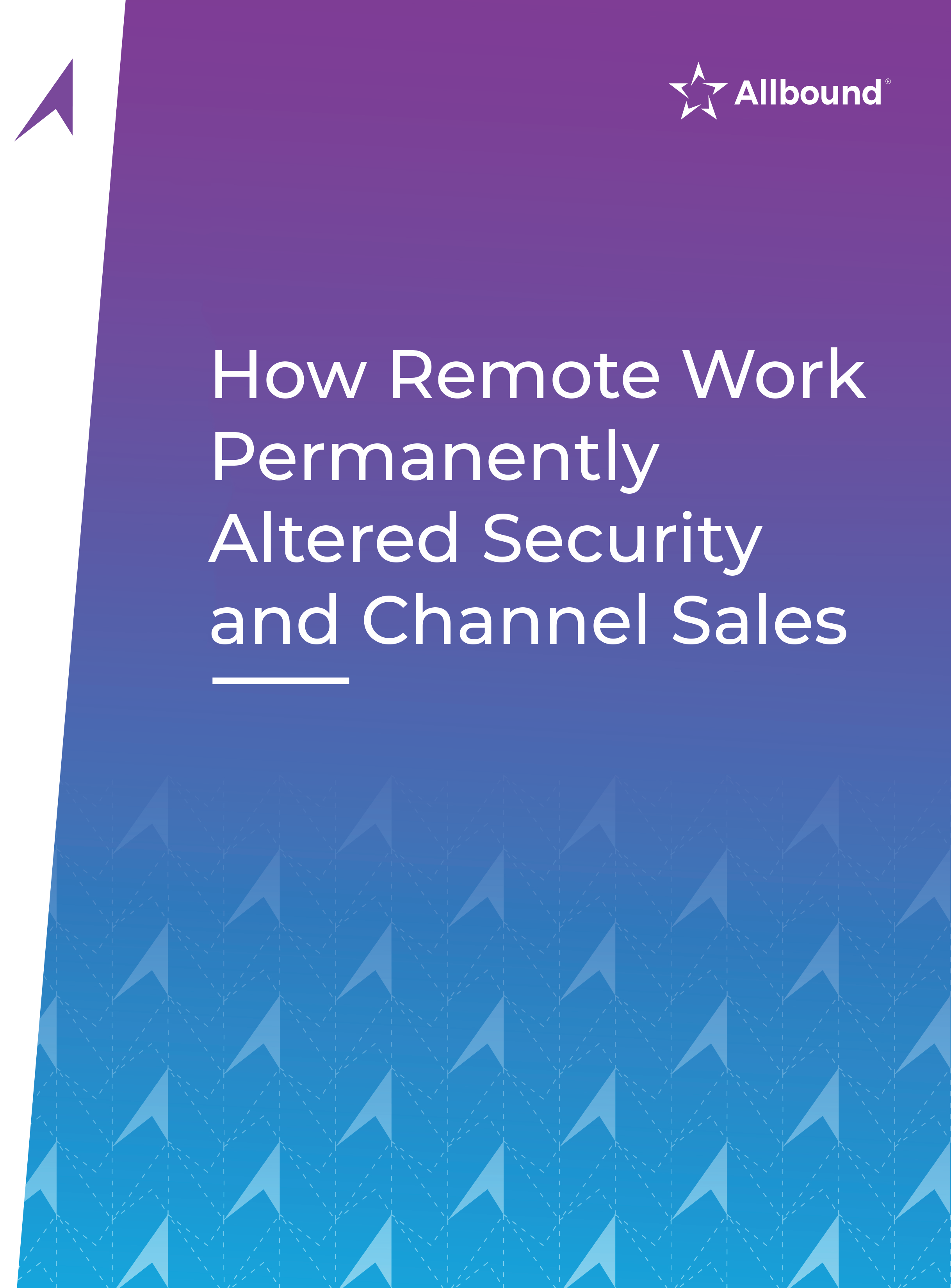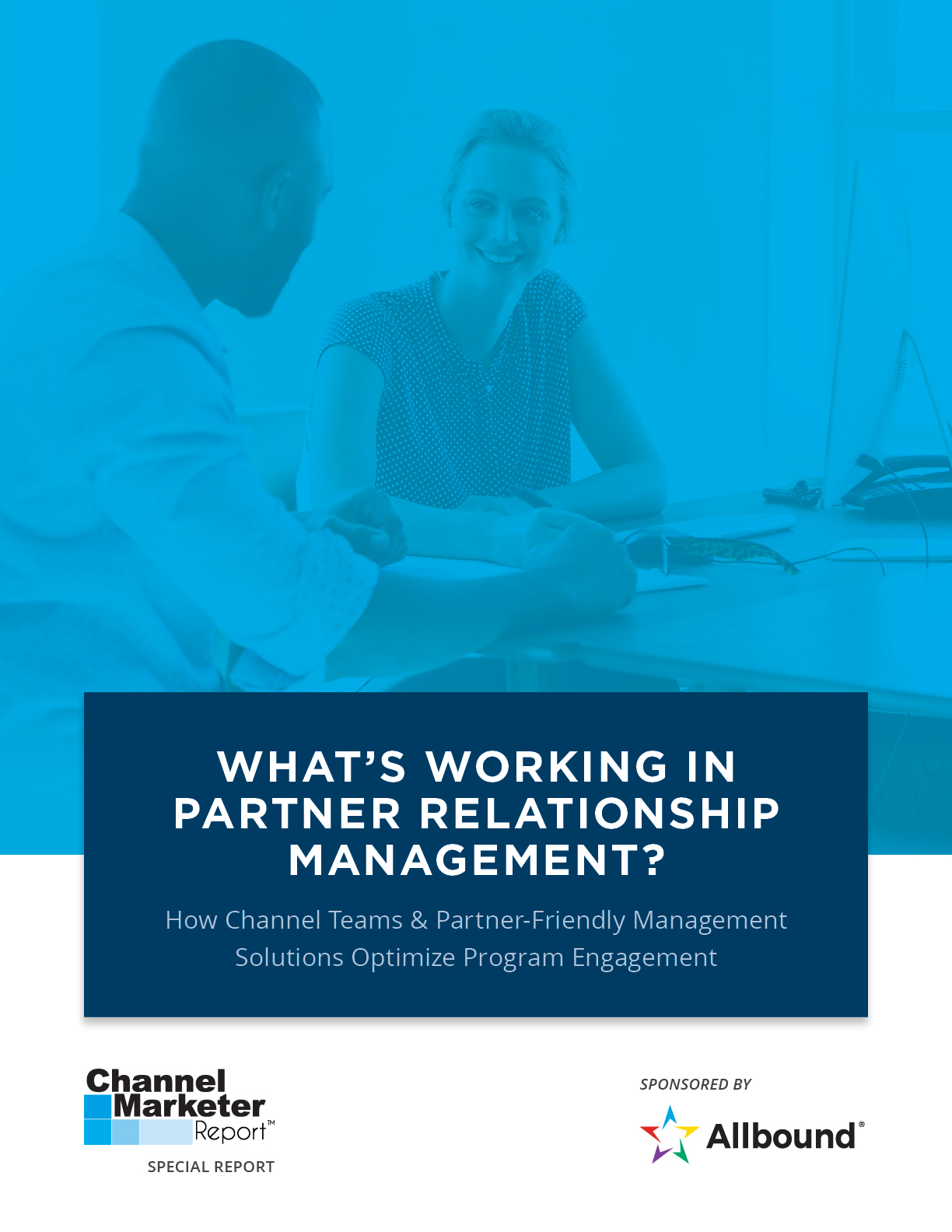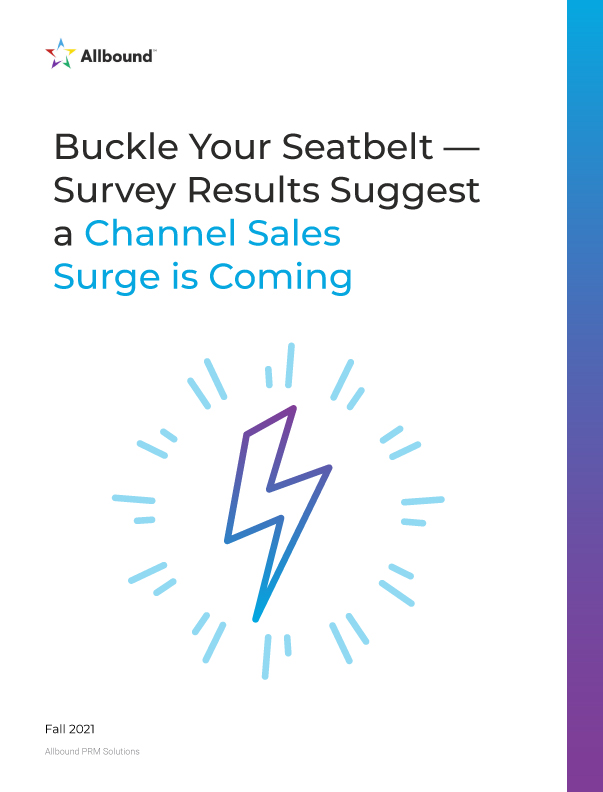Topics
Channel-Expert Agencies Expected To Play Even Bigger Role In Partner Programs
Moderating a panel of channel-fluent marketing agency executives at the B2B Marketing Exchange conference in Scottsdale last month, Jay McBain, Forrester’s principal analyst – channels, partnerships and alliances, cited a single stat that clearly demonstrates the important role agencies play in channel programs.
According to McBain, Forrester is predicting a 25% CAGR for channel marketing tools and related services over the next five years. Last year, Forrester announced that thousands of digital marketing agencies will grow to generate $2 billion in related through-channel marketing automation services.
As the agency executives at B2BMX agreed with other business leaders interviewed earlier by Channel Marketer Report, while many companies are striving to drive more revenue through their channel networks, getting partners to do more of the heavy lifting associated with marketing the brands they represent remains a significant challenge.
 B2BMX panelist Jennifer Anaya is the VP Marketing at Ingram Micro and also manages its in-house agency, Agency Ingram Micro. She commented that partners often don’t have the resources to engage with the marketing automation tools their vendors provide. While some partners are marketing savvy and have skilled teams in place, many don’t have the resources they need to optimize the tools provided to them. And “there’ a long, long list of partners that have zero marketing in house at all.”
B2BMX panelist Jennifer Anaya is the VP Marketing at Ingram Micro and also manages its in-house agency, Agency Ingram Micro. She commented that partners often don’t have the resources to engage with the marketing automation tools their vendors provide. While some partners are marketing savvy and have skilled teams in place, many don’t have the resources they need to optimize the tools provided to them. And “there’ a long, long list of partners that have zero marketing in house at all.”
Marie Rourke, Founder and Chief Channel Strategist at WhiteFox Marketing, noted that many companies implementing channel strategies — especially to target mid-market or SMB accounts — don’t have the staff to effectively engage their partners. An all too frequent assignment of channel marketing duties to a single staffer just isn’t adequate, she said. “It’s impossible for them to do that. This is a collaborative industry. This is a collaborative space.”
Lack of dedicated resources was also noted by Tracy Diziere, President and CEO of TDZ Creative Partners. While companies are making investments in partner relationship management systems and marketing automation technologies, many don’t have the people in place to take full advantage of them. Teams-of-one, burdened with a number of competing interests, don’t have the time to go through the training that will help them use the solutions, or create or refresh the content and marketing materials the systems were designed to deliver.
According to data collected by the SiriusDecisions Command Center, fewer than 15% of partners engage in the marketing programs their vendors deliver. Similarly, a compilation of three surveys of IT channel partners generating less than $10 million annually revealed that only 23% of IT channel partners with between five and 10 employees accessed or used a brand-provided marketing platform on a monthly basis in the last year. Lack of time was the primary reason for not taking advantage of the marketing tools more frequently, noted a report by OneAffiniti, a through-channel marketing solution provider.
“The lack of utilization indicates that the marketing support available to partners does not align with the majority of channel partners’ needs,” said Joel Montgomery, Founder and CEO of OneAffiniti. “Yet, the desire and demand for marketing support among partners clearly exists. Brands and their marketing partners need to do more to help partners achieve their marketing goals.”
Stepping in to help vendors do more are channel-marketing-proficient marketing agencies, service providers that are experts at aligning the not-always-shared objectives of both brands and the partners that bring their products to market.
For example, helping vendors understand that partners prefer to go to market with brand-agnostic messaging is critical. At B2BMX, Angela Leavitt, Founder and CEO of Mojo Marketing emphasized that “Partners want to present themselves as neutral, third-party, carrier-agnostic providers.” As a result, they are likely to resist using vendor-provided materials that emphasize the company’s brand. Partners want to make sure that their messaging does not feel disingenuous.to their customers. “Downplay your brand,” she advised vendors. “Let the partners’ colors come through. Tone-down your boardroom marketing. Partners don’t put themselves out there like that. They are more about relationships.”
Full-Service Offerings
In addition to championing partner preferences and helping them take better advantage of the TCMA-delivered campaigns and materials their various vendors offer, agencies are stepping in to help partners invest MDF allocations, plan local events and even follow up on prospects who engage with promotions.
What differentiates channel proficient marketing agencies from others are capabilities related to coordinating activities with vendors. In addition to understanding the details of countless vendor programs ranging from branding guidelines to MDF policies, channel savvy agencies need to be familiar with the variety of TMCA solutions vendors use.
The capabilities that marketing agencies must have to qualify for some vendors’ recommended agency programs are an indication of the extra skills they need.
Not every agency is set up to run partner demand gen programs, especially those that are funded — even partially — by vendors, explained Kathleen Lauchlan, CEO of Lauchlan, a full service B2B marketing agency focused exclusively on the IT channel. Marketing agencies that are included in referral programs “have to go through several rounds of submittals and interviews, presenting their packages, proof points and the ROI that they’ve delivered for partners on the programs that they offer. I don’t think that appeals to every creative agency out there,” she said.
Maximizing MDF
Indeed, some of the services that channel-friendly agencies offer are not for the faint of heart. A good example of the expanded role that agencies are playing in the optimization of channel programs is the pooling of MDF funds from multiple vendors to support a shared partner’s activity.
By combining allocations of several MDF programs into a single pool of marketing dollars, MRP, a digital marketing agency, is helping partners make more effective and efficient use of resources many companies often leave on the table.
Pooling MDF from different vendors isn’t easy, explained Devon Day Wellbrock, MRP’s SVP of Americas. The biggest challenge with MDF for both vendors and partners has always been compliance with the mixed requirements of how money can be spent and proof of performance reporting. “Companies have different requirements on how to deliver proof of performance on MDF,” said Wellbrock. “Part of our job is to be almost like a white-labeled resource for vendors to handle all the complexities of their rules and regulations.”
Wellbrock explained the MRP is already versed in the rules of many different vendor programs. “If there are outliers we don’t know, the partner can tell us what their requirements are or give us access to whatever systems need to be used, so we can follow the rules on their behalf,” he said.
The similarity on how vendors want their partners to invest their MDF allocations does make the task easier. Vendors will fund marketing tactics that are digital, generate demand and ultimately, produce leads. By pooling dollars together from multiple MDF programs to do a more robust execution over a longer period of time, “we’re able to produce better results for the partner as well as all of the participating vendors,” said Wellbrock.
“Equally important, the effort on the part of the partner to take advantage of the different MDF programs is greatly reduced,” he continued. “We provide the partner with a single point of contact for the implementation of the programs. And because we’re generally aware of the vendors’ requirements or can learn from them quickly, we can deliver on behalf of the partner the proof of performance each participating brand requires.”
Lauchlan agreed that helping partners manage the opportunities associated with MDF allocations is vital. “What’s extremely difficult for partners is making use of all of the funds being offered to them,” she said.
Even partners with an in-house marketing staff can be easily overwhelmed by the number of marketing programs their vendors will help fund. Making it more important for partners to use the funds, Lauchlan said, is that passing on them can reflect poorly on their organizations.
Old-School Skills Still Matter
Because most partner organizations lack sufficient resources or skills to perform even the most basic of marketing activities, the services offered by channel-focused agencies range from sophisticated data analytics to printing marketing flyers.
BrandMuscle, already a well-established, integrated local and channel marketing agency, is striving to grow its business with the development of an integrated digital-plus-physical marketing platform that helps brands increase their value and scale their message across marketing channels by empowering their local business partners.
“When you really get down to what it means to do hyper-local marketing well and execute on those promotional incentives, there are many nuisances, details and heavy lifting that have to happen at that lower level, local marketing tactic,” said Rich Mendis, BrandMuscle’s Chief Strategy Officer. Partners need support for even more basic activities, including printing the local marketing flyers, he added.
Helping partners create more successful events is a frequent request. “One of our bigger findings in a report we’ve produced over the last couple years is that events still are a big driver for local agents,” said Mendis. Support includes helping select the right event to attend and making sure that a partner for the same brand isn’t also participating.
For most vendors, efficiently addressing the needs of what could be thousands of small partners is not possible, according to Scott Weeren, CEO of BrandMuscle. “But we have the operational infrastructure to do it. Because we’re doing it for multiple clients, we have built operations that can scale across multiple clients.”
The Human Touch
The human resources that channel-centric agencies offer can be as critical as the technology they support. Alan Feldman, Senior Management Consultant at Winn Technology Group, a full-service marketing agency, described how his company often follows up on the leads campaigns generate. “It’s crucial that when somebody clicks on a link to download a white paper or indicates that they want to be contacted, they don’t have to wait a couple of weeks to hear from somebody,” he said. “Being able to offer partners a resource to jump on — within a few hours — is critical to moving a prospect further down that sales pipeline.”
What Winn Technology brings to the table, said Feldman, are the resources to support campaigns. “In some cases, it’s all about our experience or the knowledge base to implement campaigns. But so many times, it’s about our people and their time and their energy to be able to manage everything.”









